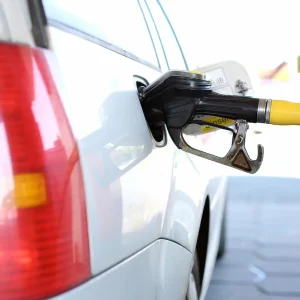The Government has ruled out “significant changes” to Vehicle Excise Duty as part of its Budget announcement on 18 March following calls to change the taxation system for diesels due to air quality concerns.
A recent Action on Air Quality report from the House of Commons’ Environmental Audit Select Committee called on the Government to urgently consider step-by-step rebalancing of taxes on diesel vehicles to address CO2, NOx and particulate matter emissions.
The committee said it understood the rationale for previous moves to promote diesel – to reduce carbon emissions – was sound at the time. However, it said: “In the light of increasing public health concerns, we need to change policy direction.”
The Government responded to the calls by reiterating its announcement in 2013’s Budget: “The Government’s focus is on supporting cleaner vehicles and sustainable transport in order to reduce carbon emissions and improve air quality.
“The Government has already announced there would be no significant changes to the structure of VED, and fuel duty will remain frozen in this Parliament.”
Fuel tax is currently charged equally on petrol and diesel, while VED and company car tax are both calculated on the basis of CO2 emissions. This favours diesels, hybrids and electric vehicles.
Dr Ian Mudway of King’s College London university gave evidence as part of the Environmental Audit Select Committee’s report.
He said: “The newer generation of petrol vehicles have no penalty in terms of CO2. So we are effectively pointing [the UK’s] car ownership scheme in the wrong direction.”
Alan Andrews of environmental activist lawyer group Client Earth, also contributed evidence for the report and said: “The NOx compliance problem we have . is overwhelmingly a diesel transport problem, which should be tackled through low-emission zones and stopping the growth in new diesel vehicles.”
In response, the Government claimed particulate matter and NOx in the UK have fallen by 15% since 2010, and said it has committed £2bn since 2011 in green transport initiatives.
While the Government has committed to no significant changes for this Parliament, there are only three months until the next election.
The Government said it would consider whether a national network of low-emissions zones such as the one in operation in London could be included as part of its air quality plans, which are due to be submitted to the European Commission later this year after a public consultation. A review may also include further incentives such as an introduction of a diesel scrappage scheme or a diesel particulate retrofit scheme.
The Government also accepted the committee’s suggestion that the new EU engine testing regime should be introduced in 2017.
The BVRLA supported the Government’s response to calls for change. “The BVRLA shares the Government’s focus on supporting cleaner vehicles and sustainable road transport,” said BVRLA chief executive, Gerry Keaney. “Like them, we think the priority is the introduction a new type-approval regime that delivers expected real-world emissions reductions, rather than a retrospective and unfair tax on diesel-driving motorists.”
An excerpt from the Action on Air Quality report, said: “Diesel vehicles have increasingly been identified as the most significant driver of air pollution in our cities, exacerbated by the growth in their number as a result of favourable fiscal incentives compared with the taxes applied to petrol fuel and petrol vehicles.
“The introduction of LEZs can be complemented by a relatively less favourable fiscal regime for diesel and diesel vehicles. The original favourable tax treatment for diesel was the result of an understandable effort to adjust the vehicle mix in a way that would help limit greenhouse gas emissions. It is important, however, that fiscal policy is flexible enough to accommodate changing understanding.”
Joan Walley, chair of the Environmental Audit Committee, said the rejection of their suggestions meant that coalition ministers have once again “failed to face up to the problem and passed the buck to the next Government”.
She said: “We have been warning that urgent action is needed for the last five years and while this Government has accepted that there is a problem it has repeatedly failed to take the tough decisions necessary to sort it out.”
The calls from the Environmental Audit Select Committee follow on from similar calls from the London Assembly Environment Committee’s plea for the Mayor of London to introduce an Ultra Low Emissions Zone before the 2020.
Under the current proposals, all vehicles from 7 September 2020 in the ULEZ would have to meet new emissions standards in place at all times. The LAEC said bringing in the ULEZ in 2020 would be “too little, too late”.





